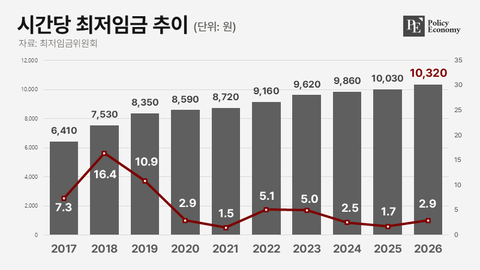입력
수정
[동아시아포럼]은 EAST ASIA FORUM에서 전하는 동아시아 정책 동향을 담았습니다. EAST ASIA FORUM은 오스트레일리아 국립대학교(Australia National University)의 크로퍼드 공공정책 학교(Crawford School of Public Policy) 산하의 공공정책과 관련된 정치, 경제, 비즈니스, 법률, 안보, 국제관계 및 사회에 대한 분석 및 연구를 위한 플랫폼입니다.
저희 폴리시코리아(The Policy Korea)와 영어 원문 공개 조건으로 콘텐츠 제휴가 진행 중입니다.
2023년 5월 일본 법무성은 일본의 기술 인턴 교육 프로그램(TITP) 폐지를 제안하는 전문가 패널의 중간 보고서를 발표했습니다. 학계에서는 해당 보고서를 일본의 외국인 노동자에 대한 보수적 태도를 바꾸는 출발점으로 보고 있습니다.

노동 수요가 증가함에 따라 지난해 일본의 외국인 노동자 수는 사상 최고인 180만 명을 기록했습니다. 하지만 외국인에게 있어 일본의 저임금, 가혹한 노동 조건, 언어 장벽은 커다란 마이너스 요소가 됩니다.
현재 일본은 저숙련 외국인 노동자를 대상으로 TITP 프로그램을 진행하고 있습니다. 이 프로그램 연수생으로 선발된 이들에게는 재류 자격이 주어지는데, 2022년을 기준으로 일본 전체 외국인의 10.6%인 32만4,940명이 여기에 해당합니다. 영주자를 제외하면 가장 큰 비중을 차지하죠. 이들 대부분은 베트남, 중국, 필리핀 등 아시아 국가 출신입니다.
그러나 이 제도는 1993년 도입된 이후 국내외적으로 큰 비판을 받았습니다. “현장 교육을 통해 교육생의 개발을 촉진한다”라는 거창한 목표를 내세웠지만, 실상은 고용주의 값싼 노동력 확보를 위한 꼼수에 지나지 않는다는 것입니다. 일본 노동기준법 위반, 훈련생에 대한 신체적·정신적 학대 등 각종 노동문제의 온상이기도 합니다. 2018년을 기준으로 약 3,000명의 교육생이 직장에서 도망쳤으며 전체 교육생의 3분의 2는 최저 임금조차 받지 못한 채 노동 현장에 강제로 투입됐습니다.
전문가 패널은 이러한 문제를 언급하며 TITP 프로그램을 연수생뿐 아니라 일본의 노동 시장에 필수적인 노동자를 재정의하는 새로운 프로그램으로 대체하는 방안을 제시했습니다.
또한 이들은 외국인 노동자가 일본에서 중장기적으로 일할 수 있는 환경을 조성하는 것이 중요하다고 강조했습니다. 현행 제도에 따르면 TITP 연수생은 최장 5년 동안 일본에 체류할 수 있는데, 이후 특정 기능 재류 자격을 취득한다면 재류 기간을 5년 더 연장할 수 있지만 TITP 연수생이 이 조건을 맞추기는 어렵습니다.
아울러 패널은 훈련생과 그들의 기본권을 보호하려면 이직 제한을 완화해야 한다고 주장했습니다. 현재 TITP 연수생은 이직이 금지돼 있어 직장 내 인권침해에서 벗어나지 못하는 경우가 많습니다.
하지만 일각에서는 교육생의 ‘역량 개발’이라는 프로그램의 목적이 근본적으로 바뀌지 않았기 때문에 패널의 제안도 피상적이라고 비판하기도 합니다. 이들은 TITP 폐지를 외국인 노동자 근로환경 개혁의 끝이 아닌 시작으로 보고 있습니다.
일본은 제도적인 관점에서 외국인 노동자를 받아들이는 과정에 관여하는 주요 이해관계자의 역할과 책임을 재검토해야 합니다.
현재 일본에서 TITP 프로그램을 주관하는 기관(이하 감독기관)은 파트너 국가의 파견기관과 협력해 연수생을 기업에 파견합니다. 그런데 일부 감독기관은 연수생을 받을 때 파견기관으로부터 불법 리베이트를 받기도 합니다. 이 금액은 결국 훈련생의 부담으로 돌아갑니다. 따라서 일본 정부는 기능실습기관(The Organization for Technical Intern Training, OTIT) 혹은 일본국제연수기능공협력기구(The Japan International Trainee and Skilled Worker Cooperation Organization) 등 기존의 공공기관을 활용해 이해관계자를 철저히 감시해서 이러한 불법행위를 근절해야 합니다.
모니터링 시스템을 강화하려면 외국인 노동자에 대한 통계 데이터를 적절하게 수집하는 것도 중요합니다. 현재 이들에 대한 데이터는 이들을 고용한 회사에서 발행하는 간략한 보고서에 의존하기에 그 회사의 작업 환경이 구체적으로 어떠한지는 베일에 싸여 있습니다.
나아가 파트너 국가와의 협력을 강화해 프로그램의 투명성을 개선해야 합니다. 앞서 언급했듯이 파트너 국가의 파견기관과 브로커는 훈련생이 일본에서 프로그램을 시작하기 전에 비싼 중개 수수료를 요구하기도 합니다. 일본 정부가 파트너 국가와 양해각서를 체결하는 등, 외국인 노동자를 환영한다는 정부 차원의 관심과 의지를 보여준다면 이러한 문제는 완화될 것입니다.
무엇보다 가장 중요한 과제는 외국인 노동자에 대한 대중의 인식을 바꾸는 것입니다. 일본에서 일하는 외국인 노동자 수는 꾸준히 늘어나고 있고, 그중 일부는 귀화를 선택하기도 합니다. 이 사람들은 이미 일본 사회의 구성원이지만 아직도 많은 사람이 이들을 일시적인 방문객으로 여깁니다. 이러한 타자성에 대한 인식은 일본 국민이 외국인 노동자가 처한 현실에 미지근한 반응을 보이는 원인으로 지목됩니다.
외국인 노동자 근로환경 개선은 이제 복지가 아닌 생존 전략입니다. 2023년 2월 기준 7,400만 명인 일본의 생산가능인구가 2030년에는 7,000만 명 이하, 2050년에는 약 5,000만 명까지 줄어들 것으로 예측되기 때문입니다.
만약 일본이 이를 해결하지 못한다면 일본에서 일하고 싶어 하는 외국인은 점점 줄어들 것이고, 이미 일본에서 일하고 있는 외국인 노동자들 역시 전보다 더 늘어난 부담을 견디지 못해 일본을 떠날 것입니다. 이러한 노동 시장의 악순환은 결국 일본 경제에 큰 타격을 입히겠죠.
전문가들은 TITP에 대한 지속적인 논쟁이 외국인 노동자 근로환경 문제를 수면으로 끌어올리는 기회라고 말합니다. 일본은 외국인 노동자와 더불어 살아가는 미래의 모습이라는, 본질적인 질문을 되짚어 보면서 이 문제를 정면으로 돌파해야 합니다.
Reimaging Japan’s relations with foreign workers
In May 2023, an expert panel submitted a mid-term report to the Minister of Justice in Japan proposing to abolish the country’s Technical Intern Training Program (TITP). It is hoped the report will provide a starting point for Japan to change its conservative attitude toward foreign workers.
Given Japan’s growing demand, the number of foreign workers hit a record high of 1.8 million people in 2022. Yet media reports warn that Japan has started losing its appeal for foreign workers due to its low wages, harsh working conditions and the language barrier.
TITP trainee — a status of residence for low-skilled foreign workers — was the second largest category of foreigners in Japan with 324,940 people (10.6 per cent of total foreign residents) in 2022. Most of them come from Asian countries such as Vietnam, China and the Philippines.
Since its introduction in 1993, the TITP has been criticised both domestically and globally. Despite its aim to foster the development of trainees through on-the-job training, the TITP opened a side door for employers to secure cheap labour. The program has been a hotbed of labour problems, including violations of Japan’s Labour Standards Law and the physical and psychological abuse of trainees. As of 2018, nearly 3000 TITP trainees escaped from their workplaces. Two-thirds of trainees were being forced to work for below minimum wage.
Given such problems, the panel proposed that the government replace the TITP with a new program that redefines foreign workers not only trainees but also labourers essential to Japan’s workforce.
The panel emphasised the importance of creating an environment in which foreign workers can work in Japan in the mid- and long-term. Under the current system, TITP trainees can stay in Japan for up to five years. Achieving the Specified Skilled Workers resident status to extend the stay for another five years is difficult for many TITP trainees.
Aiming to protect the trainees and their basic rights, the panel also proposed to ease the restriction on switching jobs in Japan. TITP trainees have been prohibited from job switching, which often prevents them from escaping from human rights violations in workplaces.
Still, some criticise these proposals as superficial because the program’s main purpose — the ‘capacity development’ of trainees — will remain intact. Abolishing the TITP is not a remedy in itself, but merely a first step toward reform.
From an institutional perspective, Japan must overhaul the function and responsibility of key stakeholders involved in the process of receiving foreign workers.
Supervising organisations in Japan currently coordinate with sending organisations in partner countries to dispatch TITP trainees to receiving companies. But some supervising organisations receive illegal kickbacks from sending organisations when they receive trainees. These sending organisations eventually place a heavy financial burden on to the trainees. The government should crack down on such wrongdoing by utilising existing public organisations, like the Organization for Technical Intern Training and the Japan International Trainee and Skilled Worker Cooperation Organization, to monitor stakeholders.
To enhance the monitoring system, Japan must also collect statistical data on foreign workers properly. The methodology for the data collection is currently confined to brief reports from receiving companies and the details of the working environment in the companies are a mystery.
The government should also collaborate with partner countries to improve the transparency of the program. Sending organisations and brokers in partner countries often charge trainees expensive margins before they start the program in Japan. Demonstrating the interest and commitment of the government to welcome foreign workers — for example, by concluding a memorandum of understanding with partner countries — will help mitigate these problems.
But Japan’s biggest challenge will be transforming people’s understanding of foreign workers. The number of foreign workers in Japan is steadily increasing. They sometimes acquire Japanese nationality through means like naturalisation. Although they are already a part of Japanese society, many citizens still think that foreigners are just temporary visitors to the country. It seems that this perception of otherness diverts the attention of the people from the challenges of foreign workers.
Attracting foreign workers is not an act of kindness, but an imperative for Japan. The country’s working-age population — which was 74 million in February 2023 — is estimated to fall below 70 million in 2030 and around 50 million in 2050. It has already become a challenge for some domestic industries like agriculture to secure a sufficient number of workers.
If Japan fails to improve working conditions for foreign workers, more foreigners will soon choose another destination. It will trap Japan in a vicious cycle, where the workforce shortage will further overload foreign workers already working in Japan.
In this sense, the ongoing debate about the TITP is an opportunity to expose these challenges. Japan must confront these challenges head on in a way that enables it to rethink the essential question of how it envisages itself together with foreign workers.





















